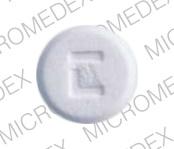Striant Interactions
There are 185 drugs known to interact with Striant (testosterone), along with 11 disease interactions, and 1 alcohol/food interaction. Of the total drug interactions, 13 are major, 168 are moderate, and 4 are minor.
- View all 185 medications that may interact with Striant
- View Striant alcohol/food interactions (1)
- View Striant disease interactions (11)
Most frequently checked interactions
View interaction reports for Striant (testosterone) and the medicines listed below.
- acetaminophen
- Advair Diskus (fluticasone / salmeterol)
- Advair HFA (fluticasone / salmeterol)
- Aerospan HFA (flunisolide)
- albuterol
- albuterol / ipratropium
- Alka-Seltzer Gold (citric acid / potassium bicarbonate / sodium bicarbonate)
- Alka-Seltzer Original (aspirin/citric acid/sodium bicarbonate)
- alprazolam
- Ambien (zolpidem)
- Amitiza (lubiprostone)
- amoxicillin / clarithromycin / omeprazole
- amoxicillin / clavulanate
- Apokyn (apomorphine)
- artesunate
- Arthrotec (diclofenac / misoprostol)
- Aspir 81 (aspirin)
- Aspirin Low Strength (aspirin)
- Ativan (lorazepam)
- atorvastatin
- Augmentin (amoxicillin / clavulanate)
- Avodart (dutasteride)
- Beano (alpha-d-galactosidase)
- Belsomra (suvorexant)
- fenofibrate
- lisinopril
- Lyrica (pregabalin)
- Nexium (esomeprazole)
- ProAir HFA (albuterol)
- TriCor (fenofibrate)
Striant alcohol/food interactions
There is 1 alcohol/food interaction with Striant (testosterone).
Striant disease interactions
There are 11 disease interactions with Striant (testosterone) which include:
- carcinoma (male)
- fluid retention
- hypercalcemia in breast cancer
- hyperlipoproteinemia
- liver disease
- polycythemia
- suppression of clotting factors
- renal/liver disease
- diabetes
- hypercalcemia
- thyroid function tests
More about Striant (testosterone)
- Striant consumer information
- Compare alternatives
- Reviews (1)
- Drug images
- Latest FDA alerts (7)
- Side effects
- Dosage information
- During pregnancy
- Drug class: androgens and anabolic steroids
- Breastfeeding
Related treatment guides
Drug Interaction Classification
| Highly clinically significant. Avoid combinations; the risk of the interaction outweighs the benefit. | |
| Moderately clinically significant. Usually avoid combinations; use it only under special circumstances. | |
| Minimally clinically significant. Minimize risk; assess risk and consider an alternative drug, take steps to circumvent the interaction risk and/or institute a monitoring plan. | |
| No interaction information available. |
Further information
Always consult your healthcare provider to ensure the information displayed on this page applies to your personal circumstances.


